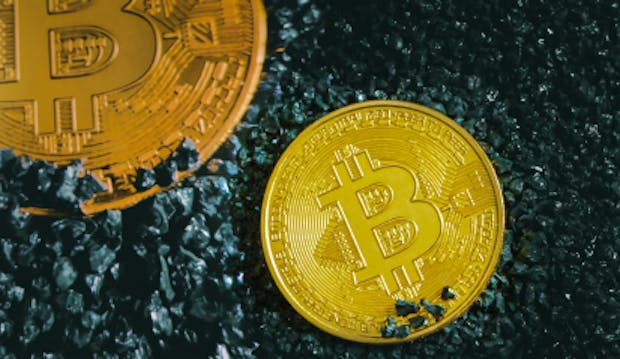Bitcoin ETFs go from riches to rags

Bitcoin ETFs go from riches to rags
love them or hate them, crypto appears to be well and truly here to stay. even in an outstanding year for the stock markets, they were soundly beaten on annual returns by a number of crypto assets in 2022. the largest of them all, Bitcoin, peaked at around $69,000/token in October when the US SEC gave its nod for a Bitcoin ETF to join the ranks on Wall Street. now, it appears, Asia’s first Bitcoin ETF could pop up somewhere unexpected: India. regardless of their location, Bitcoin ETFs promise one thing - to make investment in the crypto asset less volatile and risky.
can they deliver?
the story thus far
ETF stands for exchange traded fund. this means that any ETF represents the fractional units of a fund that trades in crypto (or any other assets) rather than the assets themselves. the difference being that ETFs that are managed well can benefit from uptrends as well as downtrends in the price of the assets. another advantage is that ETFs allow trading through regular investment accounts, bypassing the hassle and security concerns of cryptocurrency exchanges that might deter less tech-savvy investors.
the first Bitcoin ETF that went live in the US was one linked to Bitcoin futures derivatives, and not directly its price. there have been multiple efforts to launch a different ETF that’s based on live prices of Bitcoin (also known as spot price) which have been turned down by the SEC. thus the regulator’s intentions appear to be to let investors play with fire but with at least some gloves on. that decision has perhaps been vindicated by the dropoff in the price of Bitcoin, which had slid over 40% from its highs to dip below $40,000/token on January 11.
coming soon
Bitcoin is, however, no stranger to volatility and large swings. a gain or loss of as high as 10% in a day often fails to make seasoned investors even bat an eyelid, and it certainly hasn’t stopped new ones from taking an interest. it is reported that about 20 million Indians jumped onboard the crypto wagon in 2021, more than doubling the count at the start of the year. that interest is perhaps what’s driving Torus Kling Blockchain IFSC, a 50:50 joint venture between Cosmea Financial Holdings (CFH) and Kling Trading India to launch a Bitcoin ETF based in GIFT City. the former is promoted by Sam Ghosh, the former CEO of Reliance Capital. Torus King aims to achieve $1 billion total AUM (assets under management) in its first two years.
it stands a decent chance at achieving that target, given global derivatives trading volume for the cryptocurrency market totaled $3.2 trillion as of January 13. Torus Kling plans to launch the ETF by the end of this fiscal year, subject to IFSCA and other regulatory approvals. given that just last month there were rumours of a blanket ban on cryptocurrencies in the country, that would mark quite a turnaround.
proceed with caution
however, as mentioned earlier, Bitcoin has been on the downtrend since hitting its peak around the time the first ETF linked to it went live on Wall Street. that particular ETF, Proshares bitcoin ETF BITO, is down nearly 40% since reaching an all time high on November 10. it is one among many peers that thus find themselves among the 10 worst performers among ETFs over the last two months.
this is down in part to investors cashing in on their gains and in part to moves by the US Federal Reserve. it’s no coincidence that the slide in Bitcoin’s price more or less coincides with the Fed’s announcement that it would be winding down stimulus and potentially implementing three interest rate hikes this year. this means an end to the ‘easy money’ that had flowed into the market from the $1,200 stimulus cheques that were sent out to US taxpayers and low interest rates on borrowings.
overall, crypto adoption seems to be growing, with more and more businesses starting to accept them as legitimate forms of payment. other derivative industries such as the nascent NFTs are also performing well. while some see Bitcoin and its peers slated for a continued slide down the hill, others see it as an opportunity to “buy the dip”. in case of the latter, ETFs might afford a less volatile route, and here are some worth checking out.



